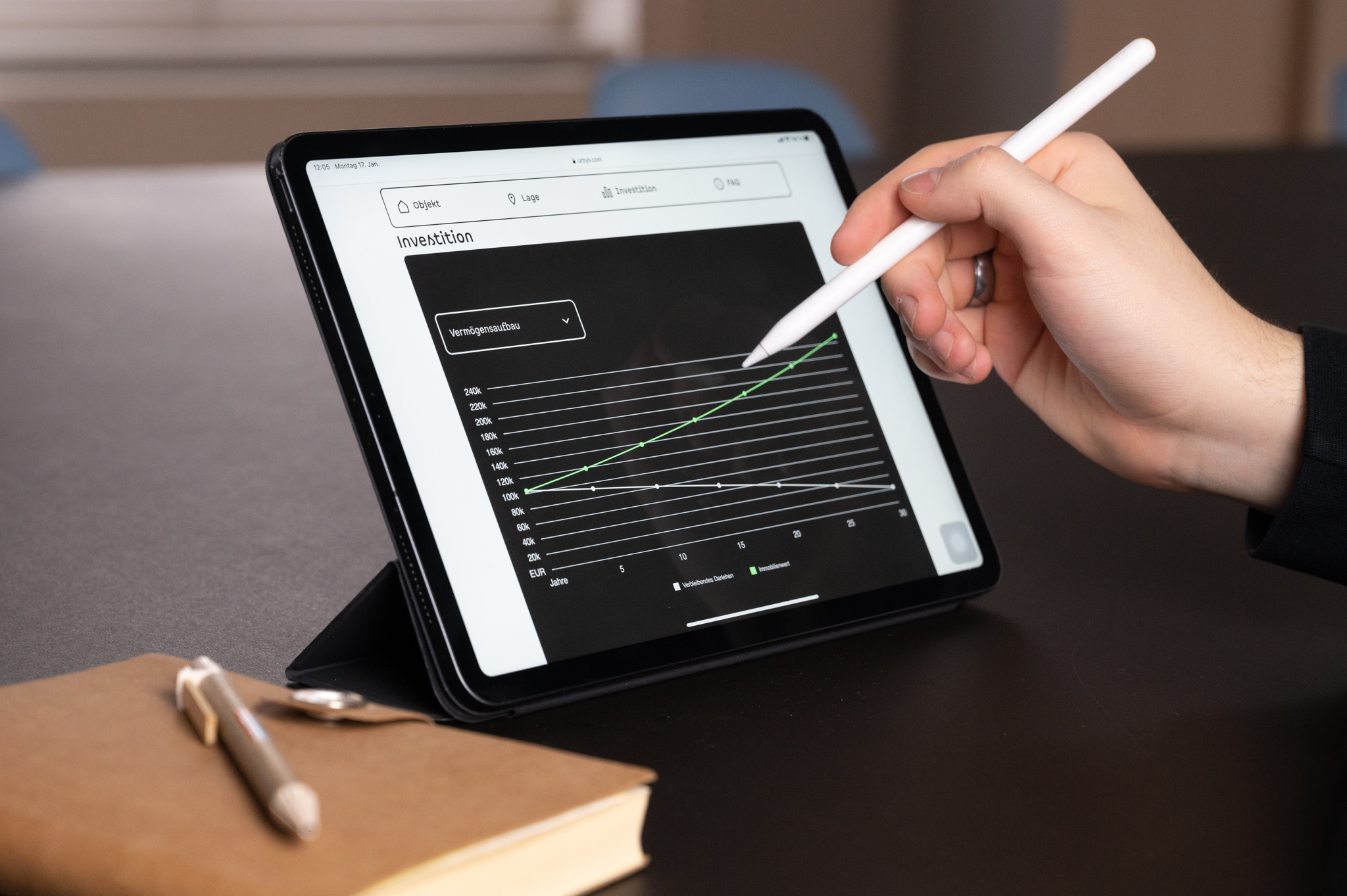How to pay off your mortgage faster with extra payments
There's room for more

Unscheduled repayments
Making extra payments on your loan to pay it off quicker sounds like a pretty good idea. It also sounds pretty easy to do. But the fact of the matter is that lenders don't just let borrowers make payments whenever they want. And even the KfW promotional bank's subsidy programs can sometimes make it difficult to make extra payments. Keep reading to find out why that is and learn how to unlock the extra payments option.
You can also send us an email if you have questions about extra payments. Our finance experts know all the ins and outs of property financing and explain what you can — and can't — do with extra payments.
Making extra payments on your mortgage
If you don't have the slightest clue what extra payments are, you've come to the right place. We'll explain everything! Let's get started.
An extra payment is an additional, unscheduled payment on your mortgage. In other words, extra payment is an optional settlement made on your loan in addition to your regular monthly payment. But to have this option in the first place, your bank has to agree to it. Every additional payment you make during the fixed-interest rate period (lock-in period) reduces the total amount of interest the bank expects you to pay.
But don't worry: this isn't some kind of rare and unusual arrangement. Extra payments on mortgages are very common, and most banks will not charge you an interest rate premium for the option to make them. That is, as long as your annual extra payments do not exceed 5% of the total loan amount. On a €100,000 loan, your limit would come to €5,000 per year. For the bank, the risk associated with this is both manageable and calculable.
The benefits of extra payments are clear: they reduce the total amount of interest you end up paying and help you pay off your loan faster.
By the way: Some banks will let you make more than 5% in extra payments per year, with limits as high as 10%, 50%, or even 100% of the loan. But you'll have to pay an interest rate premium for the convenience. That's where an interest and amortization schedule calculator can come in handy because it allows you to see pretty accurately what your monthly payment will be under different conditions and how extra payments will affect your amortization schedule.
When extra payments are an option for you
As you can probably imagine, paying off more of your loan than the amount due every month requires having extra cash lying around. If you don't have a ton of savings, it's challenging to do. But then again, you might be expecting a raise or a bonus at work soon; or maybe you usually get a tax refund every year; or you might inherit money within the next ten years.
If that's the case, then utilizing this money for extra payments is a great idea. Leaving that money in an instant access savings account isn't going to do much — the interest rates are simply too low right now. The only advantage of accounts like these is the easy access to your money, but that's about it.
A better way to use that extra cash is to use it for extra payments. They lower the total amount of interest you end up paying as well as the balance remaining when your lock-in period ends, which is important once you apply for follow-up financing. The less you need to refinance at the end of the lock-in period, the better the conditions will be on your follow-up loan.
Making extra payments: when, how much, how often
The amount and frequency of your extra payments are specified in your loan agreement. Some lenders will allow you to make prepayments on a daily or weekly basis. In particular, that can happen if your loan agreement doesn't include the option to change your amortization rate and you make your monthly payments via direct debit.
But in many cases, you can only make extra payments once a year, and some banks will specify a deadline. If you have extra money available by that time, you should consider taking advantage of the opportunity. It's worth mentioning that you don't always have to make a full extra payment either. Paying less is perfectly acceptable, regardless of the amount. You'll only have a hard time when you want to pay more than the set rate.
If you notice that you're a bit more strapped for cash one year than you usually are, you can also skip it. After all, it's voluntary. However, if you're paying an interest rate premium because of your extra payment arrangement, you'll still have to pay it whether you make use of it or not.
Tip
If you have to pay an interest rate premium for the option to make extra payments, it's a good idea to think about whether you'll truly be able to afford to make an unscheduled extra payment each year. If not, you may end up paying more taxes than you would without this option.
Extra payments on KfW loans
In cases where it's possible and makes sense, your property financing can take the form of an annuity mortgage combined with a subsidy program run by the KfW promotional bank. KfW subsidy programs allow you to obtain favorable loan conditions on a portion of the
property's purchase price, and they also help you save on interest. But just like any other bank loan, KfW loans have to be paid back in monthly installments.
Some KfW programs offer the option to make prepayments, allowing you to make extra payments towards a portion — or even all — of the loan principal before the lock-in period ends. This option is offered with the following programs:
Energy-Efficient Construction
Energy-Efficient Refurbishment
Residential Property Modernization
Age-Appropriate Conversion
Whether on a standard loan or a KfW loan, extra payments are doable if you want to have your financing finished and out of the way as quickly as possible. You can find plenty of questions, answers, and discussions about this topic in the Urbyo Community. Stop by and have a look!
